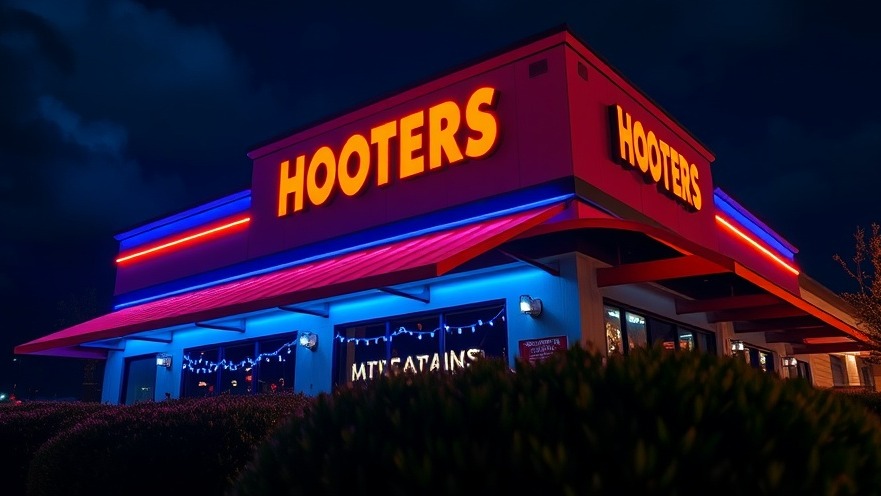
Hooters Files for Bankruptcy: An In-Depth Analysis
In a significant development for the restaurant franchise sector, Hooters has officially filed for bankruptcy protection in Dallas. This move comes as part of a strategic bankruptcy agreement in which a group led by the brand's founders aims to buy the 100 company-owned locations currently operated by private-equity owners. With over 400 establishments across 42 states and 29 countries, the plan is to finance a total of $40 million during this process, as reported by Bloomberg News.
The Franchisor Perspective on Hooters’ Rebranding Efforts
Franchisors observing Hooters' situation are keen to learn from this pivotal moment. The company's bankruptcy strategy indicates a clear shift in focus toward franchise-driven operations—an approach that could signal a transformational period for the brand. Post-bankruptcy, all locations are expected to become franchises, reinforcing the importance of maintaining brand consistency while enhancing operational efficiency.
Implications of the Rebrand: Aiming for Family-Friendliness
The new ownership group is not content merely to take over the existing operations; they aim for a profound rebranding effort termed “re-Hooterization.” Announced by CEO Neil Kiefer, the initiative seeks to phase out the “bikini nights” and foster a more family-friendly atmosphere in the restaurants. This strategy suggests an understanding of shifting market dynamics, as consumer preferences evolve within the dining sector.
Evaluating The Past: Hooters' Branding Missteps
The Hooters brand enjoyed immense popularity early on, with a distinctive marketing strategy that embraced its “delightfully tacky” identity. However, past misjudgments, such as introducing overly revealing uniforms, have led to backlash, compelling them to amend their policies. This rebranding effort seeks to reconnect with the core values that initially propelled the brand into the limelight.
Franchisor Insights: What Can Be Learned?
For other franchisors, the key takeaway from Hooters' situation is the importance of adapting to societal expectations while maintaining brand integrity. The transition to an all-franchise model could foster a culture of franchisee collaboration, encouraging operational excellence and innovation. Franchisors can take cues from Hooters to maximize their brand’s value by recognizing the necessity of evolving consumer preferences and the potential risks posed by alienating their core customer base.
Future Predictions: Navigating the Changing Landscape of Franchise Dining
As Hooters embarks on this journey of transformation, its successes and struggles will likely inform future trends in franchising. The focus on operational efficiency, franchisee empowerment, and brand consistency will be crucial, especially in an evolving market where dining experiences are increasingly scrutinized by consumers. A successful rebranding effort here could set a precedent for how franchises adapt and withstand financial challenges.
Decisions Moving Forward: A Strategic Framework for Franchise Resilience
As Hooters navigates its rebranding, it underscores the need for franchisees to remain aligned with changing market demands. A willingness to pivot strategies—be it menu offerings, branding, or customer engagement—will prove essential. Operational strategies should include regular market analysis, feedback loops with franchisees, and ongoing training to ensure that brand promises are fulfilled at every location.
Conclusion: Opportunities Ahead for Franchisors and Franchisees
As Hooters pivots towards a more family-friendly model and emphasizes a franchising strategy, other operators can examine this case closely to derive actionable insights. The evolving landscape of consumer expectations offers ample opportunity for innovation and adaptation across the franchise sector. It’s essential for franchisors to remain proactive about their brand’s relevance, ensuring sustainability and growth.
For those in the franchise business, now is the time to evaluate your own brand strategies, considering what lessons Hooters' rebranding offers. Stay vigilant as this iconic brand rediscovers its roots and positions itself for future success.
 Add Row
Add Row  Add
Add 




Write A Comment